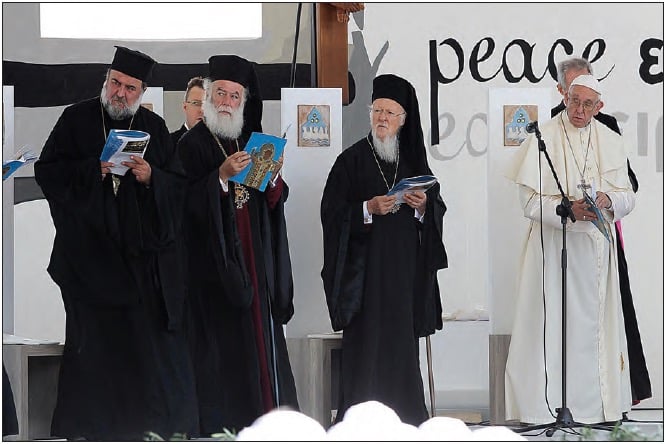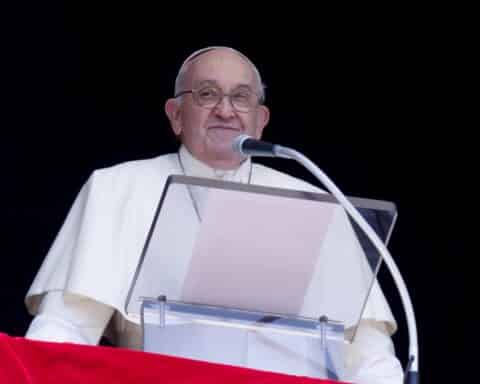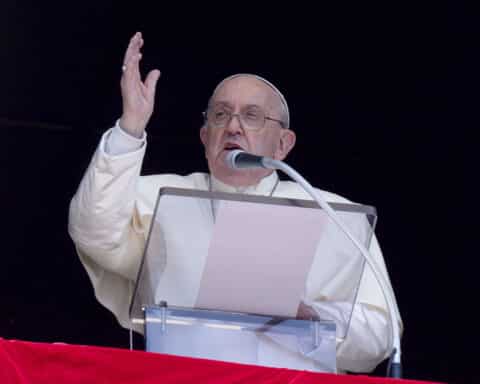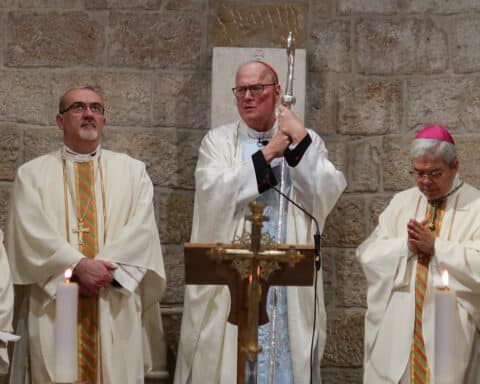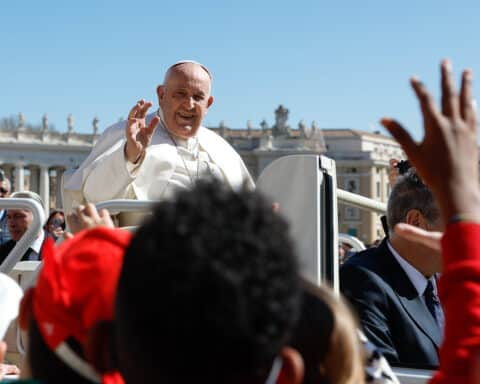“The future we desire for the Middle East is a future of cohabitation between Muslims, Christians and Jews. This is the Middle East that we dream of,” said Cardinal Leonardo Sandri, prefect of the Vatican’s Congregation for Oriental Churches. Cardinal Sandri described this ideal Middle East, noting it would involve giving minorities equal rights and not treating them as second-class citizens, during an exclusive interview with Our Sunday Visitor.
In the Italian city of Bari, Cardinal Sandri spoke regarding the pope’s July 7 trip to the city, where Pope Francis joined other Christian Church leaders in a day of ecumenical reflection and prayer for suffering Christians in the Middle East. Bari — the city that houses the relics of St. Nicholas and venerates the Mother of God as Hodegetria, the one who shows the way — is a symbolic place where there is a great presence of the East in the West. This day in Bari came to fruition after different Churches or Patriarchs proposed the idea of such a gathering directly to Pope Francis during their visits to Rome, which the pope right away welcomed.
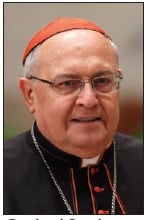
Because of wars and persecution in the Middle East, many families have been forced to abandon their homeland in search of security and a better future. The percentage of Christians in the region has fallen dramatically. Before World War I, Christians represented 20 percent of the population, and now only 4 percent. The region needs a future of peace, which is one of the hopes from the meeting in Bari, as Cardinal Sandri told OSV.
Our Sunday Visitor: What has been the significance of this encounter of Pope Francis and the leaders of the Middle East?
Cardinal Sandri: It was above all a prayer meeting. Every day, we learn of a new weapon that comes out in the world … The weapon of the Church is prayer! It’s the weapon Jesus taught us, to love our neighbor and say “Our Father in heaven.” And if you present this prayer together in my name, Jesus said, I will listen to you. The Church cannot lose the force of praying, imploring, begging, asking for forgiveness, peace and blessing for the world. Therefore, the prayer encounter of Bari … is also a message to the conscience of those who hold power in the world: “Stop war, hatred, division, forcing people to leave their homelands, leaving everything to escape elsewhere.” It is an act of prayer, of prophecy, too.
| Pope Francis in Bari |
|---|
|
“From the Middle East the Lord, the ‘sun from on high’ (Lk 1:78), came forth to visit us. From there, the light of faith spread throughout the world. … “Yet this region so full of light, especially in recent years, has been covered by dark clouds of war, violence and destruction. … There is also the danger that the presence of our brothers and sisters in the Faith will disappear, disfiguring the very face of the region. For a Middle East without Christians would not be the Middle East.” |
OSV: The meeting took place in the city of the relics of St. Nicholas. What significance did this have for the event?
Cardinal Sandri: Undoubtedly, an important significance! Nicholas came from the East. He is especially venerated in the Byzantine Church, in the Russian Church and in many other Eastern countries. Hence, our prayer is that this holy bishop, who transformed the city of Bari into a city open to the Christian East, toward ecumenism, is truly a bearer and a forerunner of peace!
OSV: What are the hoped-for benefits for those in the Middle East of this meeting?
Cardinal Sandri: We certainly hope that Christians in the Middle East will benefit! Christian minorities are a fundamental element of life in the Middle East. Pope Francis also said this, repeating a well-known affirmation of his predecessor Benedict XVI: “A Middle East without Christians would no longer be the Middle East.” Because Christianity, in the name of the Gospel, brings balance, openness, dialogue, reconciliation, forgiveness, not war, hatred, violence. That’s why we repeat that even Christians, as they respect non-Christians, are also entitled to a recognition of their existence by the public authorities. This is not just a question of religious freedom. It is a question of a human, civil value: since they are citizens like everyone else, they must be respected like everyone else. They cannot be mistreated just because they are a minority.
OSV: Do you really think that there is a future in the Middle East for Christians?
Cardinal Sandri: I would encouragingly shout to them, as already their patriarchs and religious leaders do: “Remain in the Middle East!” However, obviously it’s necessary to satisfy conditions for this to happen. If there is no security, no peace, then it is difficult to stay. Nevertheless, I must add that for example in Iraq, after so much pain and war, Christians are returning to their homes, especially in the Nineveh Plain.
OSV: What hope does the closeness of Pope Francis to the Middle East, which we saw manifested in Bari, give to the future?
Cardinal Sandri: After Pope Francis has promoted such a meeting, and after it has been so well received, with a choral response from the Catholic and Orthodox patriarchs, I believe that the symbolic force launched and now radiating from Bari will be something very positive for peace in the Middle East.
OSV: How important is ecumenical and interreligious dialogue in building a future for the Middle East?
Cardinal Sandri: Certainly, the future we desire for the Middle East is a future of cohabitation between Muslims, Christians and Jews. This is the Middle East that we dream of. Let’s implore from God this grace!
OSV: What message would you send from Bari to Middle Eastern Christians of the diaspora, who have left their lands to live elsewhere?
Cardinal Sandri: To all of them, even to those who have established themselves in other countries for several generations, I say first of all: “Don’t forget your roots! You must help your brothers in the Middle East and you must live in the West the values you received from your ancestors!” But it is also necessary to help those who have not yet settled completely in another country to move back to their homeland.
OSV: Ultimately, what message do you want to send personally from Bari?
Cardinal Sandri: Only “peace be with you”, Psalm 122, the motto of the Bari event. Peace be with, Jerusalem, the whole Middle East, the whole world! And while we keep our eyes fixed on the Middle East, let’s not forget all the other difficult situations in today’s world! I think of refugees fleeing war, of Africa, Nicaragua, Ukraine and many other places!
Deborah Castellano Lubov writes from Rome.

